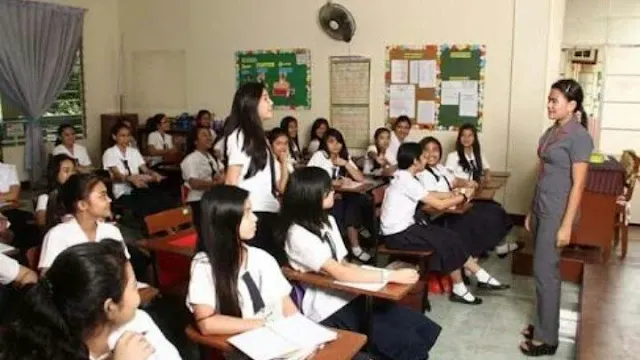The recent commentary titled “What Kind of Teachers Are We Creating?” rightly raises pressing concerns about the state of teacher education in the Philippines. It challenges us to rethink how we prepare and evaluate those standing at the frontlines of our classrooms. But while the author accurately identifies a need for better-trained, more reflective educators, the piece only tells half the story. It is incomplete without confronting the equally powerful forces at play: an education system that demands progress but punishes discipline, promotes all but prepares few, and overprotects to the point of stagnation.
Mass Promotion and the Illusion of Progress
At the heart of this crisis is the “no child left behind” approach mandated by DepEd Order No. 8, s. 2015 (Policy Guidelines on Classroom Assessment). While the policy aims to support struggling learners, its unintended consequence is the widespread mass promotion of students who are neither academically nor behaviorally ready for the next level. Teachers, often under administrative pressure, are forced to pass students who fail to meet basic competencies—creating a pipeline of functionally illiterate yet formally promoted graduates.
In truth, many of our teachers are capable and passionate. But their evaluations are increasingly based on paperwork compliance, not teaching quality. In this landscape, even the best educators are rendered ineffective—not due to incompetence, but because they are systemically disempowered.
Child Protection or Teacher Persecution?
DepEd Child Protection Policy (DepEd Order No. 40, s. 2012) is vital in protecting children from abuse, but in practice, it has been weaponized against teachers who attempt to enforce discipline. In several reported cases, teachers have faced suspension, harassment, and even criminal complaints for simply reprimanding or correcting students.
Take the case in Leyte (2019), where a public school teacher was suspended and investigated after a student filed a complaint for being scolded in class. Or the widely circulated case in 2022, where a teacher in Cavite was threatened with legal action for confiscating a student's mobile phone during class hours. These are not isolated incidents—they are a growing trend that sends a chilling message to educators: "Discipline at your own risk."
How can we expect teachers to uphold standards when they are one complaint away from public disgrace or administrative sanctions?
The Culture of Over-Pampering
The concept of “child-friendly schools,” heavily promoted through DepEd's various learner-centered initiatives, has also tipped the scale toward over-pampering. Students now grow up in classrooms where failure is feared, discipline is diluted, and accountability is absent. What was once a healthy push for safe and inclusive spaces has become, in some cases, a barrier to academic rigor and behavioral expectations.
Many students today lack resilience and initiative. They expect passing grades with minimal effort, demand respect without earning it, and are emboldened by policies that place all responsibility on the teacher. We are producing students who may be emotionally protected, but are educationally unprepared and personally undisciplined.
We Don’t Just Need Better Teachers—We Need a Better System
The article argues that some teachers are “products of the same broken system.” That may be true. But let us not forget that many of those teachers overcame that system and now fight daily to deliver quality education in overcrowded classrooms, with limited resources, and under immense scrutiny.
Reforming teacher education is only one part of the solution. If we truly want to transform education in the Philippines, we must also:
-
Revise policies that promote students regardless of performance.
-
Rebalance child protection laws to allow for reasonable disciplinary action.
-
Support teachers when they enforce classroom rules, not abandon them.
-
Teach students that rights come with responsibilities, and that failure, when earned, can be a tool for growth—not trauma.
Let Teachers Teach
The problem isn't just the kind of teachers we're creating—it's the kind of students we’re enabling, and the kind of system we’re defending. In our pursuit of inclusive, friendly, and progressive education, we’ve forgotten the importance of discipline, accountability, and consequence.
If we want educated, capable, and ethical graduates, we must give teachers not just training, but trust. Not just policies, but power. Until then, we cannot blame the people standing in front of the class, when it is the very system behind them that’s setting them—and their students—up to fail.


















0 Comments